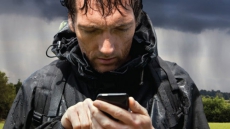Dogs that are trained with so-called "pseudo-explosives" cannot reliably sniff out real explosives, a study said.
Genuine explosive materials are traditionally used to train dogs to detect explosives and to test their performance later on.
However, challenges arising from the acquisition, storage, handling and transport of explosives have motivated the development of "pseudo-explosive" or "pseudo-scent" training aids.
These products attempt to mimic the odour of real explosives yet remain non-hazardous.
"However, we found that dogs trained on pseudo-explosives performed poorly at detecting all but the pseudo-explosives they were trained on," said William Kranz from Indiana University-Purdue University Indianapolis (IUPUI).
"Similarly, dogs trained on actual explosives performed poorly at detecting all but the actual explosives on which they were trained," he said.
During the study, Kranz with Nicholas Strange and John Goodpaster tested how well a group of 17 dogs were able to locate three types of explosives and their pseudo-versions: single-base smokeless powder, 2,4,6-trinitrotoluene (commonly known as TNT) and a RDX-based plastic explosive.
In general, dogs trained on simulated explosives could sniff out the genuine article only 14 percent of the time.
Similarly, dogs trained on real explosives responded to pseudo-explosives only 16 percent of the time.
"In fact, animals only had a nose for the materials upon which they were trained. For example, dogs trained on real explosives were able to locate them 81 percent of the time. Dogs trained with the pseudo-explosive versions had a very similar success rate of 88 percent," Goodpaster said.
The findings were published in Springer's journal Analytical and Bioanalytical Chemistry.





